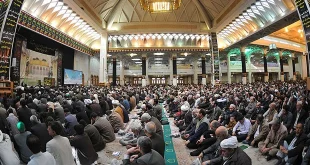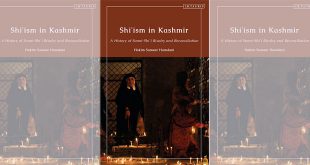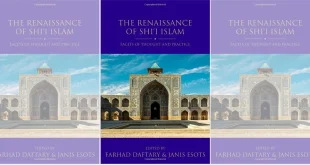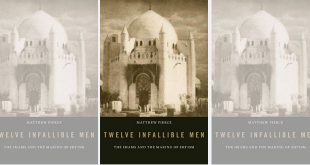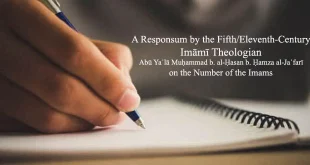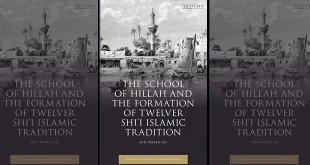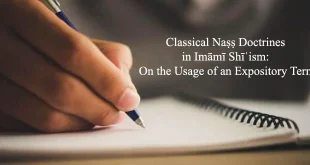This article seeks to examine the contexts of Shiite growth from the past to the present. The author has studied and researched mainly this issue in the field and by analysing his findings in this country, he has proved the major effects of the....
Read More »Shi‘ism in Kashmir: A History of Sunni-Shia Rivalry and Reconciliation
This book traces the impact of Sunni power on Shii society and how this changed during the 19th and early 20th centuries. The book identifies a distinctive Kashmiri Shii Islam established during...
Read More »The Renaissance of Shiʿi Islam, Facets of Thought and Practice
The chapters in this open access book represent the most recent scholarship on the intellectual and spiritual life of the age and discuss what prepared the ground for its appearance as well as its achievements....
Read More »Twelver Shī‘īsm and Answering Shī‘ī Reformists
As societies have meandered through different epochs, expansions and ideas, it has only been natural for existing notions and ideas to be challenged, and this is a necessary and natural part of...
Read More »Twelve Infallible Men: The Imams and the Making of Shi’ism
Twelve Infallible Men focuses on the role of narratives of the imams in the development of a distinct Shiˀa identity. During the tenth century, at a critical juncture in Islamic history, a group of scholars began assembling definitive works containing accounts of the...
Read More »Book: The Shī‘ah and Islamic Disciplines
The invaluable legacy of the Household [Ahl al-Bayt] of the Prophet (may peace be upon them all), as preserved by their followers, is a comprehensive school of thought that embraces all branches of Islamic knowledge. This school has produced many brilliant scholars who have...
Read More »A Responsum by the Fifth/Eleventh-Century Imāmī Theologian Abū Yaʿlā Muḥammad b. al-Ḥasan b. Ḥamza al-Jaʿfarī on the Number of the Imams
The present study discusses the scarce available data about Abū Yaʿlā al-Jaʿfarī and shows that he, rather than al-Murtaḍā, is the author of the tract, which circulated under titles such as Risālat al-ḥujja fī l-imāma and Masʾala fī bayān imāmat al-aʾimma al-ithnay ʿashar....
Read More »Abū Yaʿqūb al-Sijistānī in Modern Scholarship
Although al-Sijistānī was a leading figure in the development of Ismāʿīlī philosophy, particularly its Neoplatonism, serious investigation of his writing has been slow to enter modern scholarship, in part because his works have remained inaccessible until...
Read More »The School of Hillah and the Formation of Twelver Shi’i Islamic Tradition
This book argues that Imami Shi'ism is better understood as a discursive tradition, and that from the late Abbasid to the post-Ilkhanid period, Hillah, in southern Iraq, was a center of scholarship, debate and...
Read More »Classical Naṣṣ Doctrines in Imāmī Shīʿism: On the Usage of an Expository Term
This article reexamines the use of the term naṣs, which since Marshall Hodgson has been used in modern historiography to refer to an indigenous Shīʿī mechanism of succession to the imamate....
Read More » Ijtihad Network Being Wise and Faithful Muslim in the Contemporary World
Ijtihad Network Being Wise and Faithful Muslim in the Contemporary World
